Storying Otherwise: A Hub for Creative Ethnographic Writing

Storying otherwise stems from the promise of creative writing to expand our imaginations and horizons of the possible. Crises of many kinds call upon anthropologists and other social science and humanities scholars to imagine possibilities of remade worlds, and to make our research-related writing-of-the-otherwise accessible and public.
The Storying Otherwise Hub for Creative Ethnographic Writing is a collaboration between Sue Frohlick and Laura Meek. Their core objectives in creating the Hub, funded by a 2024-2025 UBC Okanagan Public Humanities Incubator Grant, are:
- to collaborate with other creative ethnographic writers to advance their own and others’ storying otherwise potential; and,
- to move their research into public spheres in dialogue with other writers and makers who share a commitment to worlds ‘otherwise.’
The Storying Otherwise Hub was inspired by the excitement and enthusiastic participation of our colleagues in a series of four roundtables we convened for the 2023 Joint Annual Meeting of the American Anthropological Association and the Canadian Anthropology Society. At this international conference held in Toronto, our Call for Papers attracted submissions from over 60 emerging and established scholars from all over Canada, the US, Latin America, the UK, Europe, and Asia. We initiated this Hub to further advance the generation of a national and international network for public creative ethnographic writing. Our current collaborators include anthropologists from around the world as well as scholars working in sociology, gender studies, geography, cultural studies, environmental humanities, disaster studies, sound studies, global health, ethnomusicology, science and technology studies, performance studies, and beyond. We welcome those interested in joining us to attend our forthcoming events (details below).
Meet the Co-Directors
Sue Frohlick
Sue Frohlick is a Professor in the Department of Community,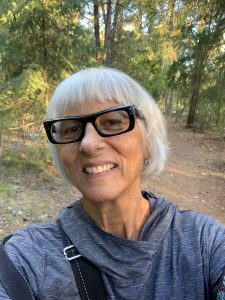 Culture, and Global Studies. She is an Anglo-settler of Norwegian, German, and English ancestry. A cultural anthropologist, her research explores intersections of tourism with reproduction, transnational intimacies, and sexual subjectivities, and, most currently, with the politics of sound and space. Her book, Bloom Spaces: Reproduction and Tourism on the Caribbean Coast of Costa Rica, published by the University of Toronto Press Teaching Culture Series in 2024, is her first entry into creative ethnographic writing, a means to tell a story about a sensitive topic in an accessible way for a broad audience. She has also written on “listening otherwise” in critical tourism studies.
Culture, and Global Studies. She is an Anglo-settler of Norwegian, German, and English ancestry. A cultural anthropologist, her research explores intersections of tourism with reproduction, transnational intimacies, and sexual subjectivities, and, most currently, with the politics of sound and space. Her book, Bloom Spaces: Reproduction and Tourism on the Caribbean Coast of Costa Rica, published by the University of Toronto Press Teaching Culture Series in 2024, is her first entry into creative ethnographic writing, a means to tell a story about a sensitive topic in an accessible way for a broad audience. She has also written on “listening otherwise” in critical tourism studies.
Sue’s community-based research in Winnipeg looks at relationality for African immigrant and refugee youth as they navigated life as newcomers. In collaboration with community members, Tsion Zebene and Adey Mohamed, they are creating a graphic ethnography Vitalities of Settlement. Through comic book format the book will depict the vitalities in the youths’ lives and everyday processes of settlement they experienced, punctuated with anti-Black and anti-Muslim racism and surveillance, as they inhabited spaces of whiteness and a dominant “multicultural” ethos. Sue’s interest in storying otherwise is to align creative ethnographic writing with feminist, queer, anticolonial, and radical ethics of care approaches to writing for the possibilities of remaking worlds. She is a late bloomer into this field, and grateful for the opportunity to learn from, and contribute to, the burgeoning number of anthropologists working on “otherwise” forms of telling stories differently.
Laura Meek
Laura Meek is an Assistant Professor in the Department of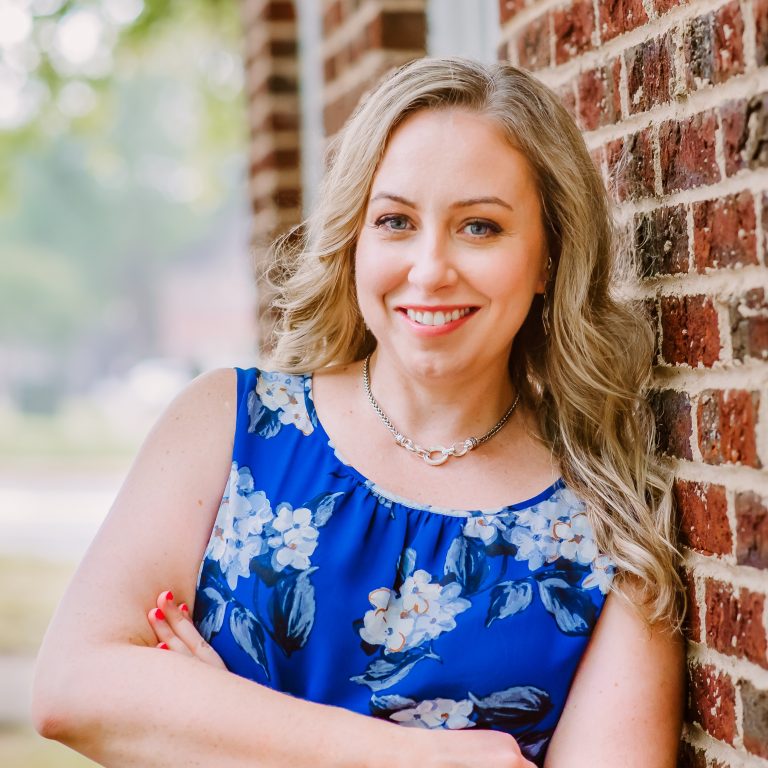 Community, Culture, and Global Studies. She is an Anglo-settler of mixed European ancestry. A cultural and medical anthropologist, Laura’s research centers around fugitive science, embodied knowledge, and the politics of health and medicine in East Africa. In writing about medical practices which often involve the agency of ancestors, witchcraft, God, jinn, and other beings, she has found inspiration in calls to “fictionalize anthropology,” which she takes to mean the subversive refusal of the neo/colonial epistemological and ontological grounds upon which hegemonic distinctions between truth and fiction have been produced. Her interest in writing otherwise thus stems from a commitment to telling the “untellable story,” the story which, to be told, requires the creation of new categories of tellability.
Community, Culture, and Global Studies. She is an Anglo-settler of mixed European ancestry. A cultural and medical anthropologist, Laura’s research centers around fugitive science, embodied knowledge, and the politics of health and medicine in East Africa. In writing about medical practices which often involve the agency of ancestors, witchcraft, God, jinn, and other beings, she has found inspiration in calls to “fictionalize anthropology,” which she takes to mean the subversive refusal of the neo/colonial epistemological and ontological grounds upon which hegemonic distinctions between truth and fiction have been produced. Her interest in writing otherwise thus stems from a commitment to telling the “untellable story,” the story which, to be told, requires the creation of new categories of tellability.
Laura’s first short story, “Azizi,” received an award for Creative Ethnographic Prose from the Society for Humanistic Anthropology and was published in Anthropology and Humanism. Her article, “Otherwise,” co-authored with cultural studies scholar Julia Morales Fontanilla, explores the “otherwise” as a concept, analytic, method, and ethico-onto-political commitment to the insistence of the possible against the pull of the probable. Published in Feminist Anthropology, the piece proposes a series of specific practices for writing otherwise, including: attunement to the politics of the mundane; speculative co-laboring as a form of care; the fracturing of anthropological epistemologies; writing as a “complex we”; and not (always) knowing. These approaches were foregrounded in a special issue that Laura co-edited with geographer Abigail Neely in Medical Anthropology Quarterly. The collection, entitled “Beyond the Limits,” draws on disqualified types of knowledge and minor practices to demand a rethinking of biomedical limits in pursuit of more expansive visions of health, care, cure, ethics, and healing. Each of these projects represents different strands of Dr. Meek’s approach to storying otherwise.
PAST EVENTS
Writing Prompts gatherings saw faculty and graduate students share reflections on the writing process which offered valuable insights that are now compiled in this zine to inspire and support others in their writing journeys.
March 2025 Workshop and Public Open Mic Night
Written by Blaze Grazzini, Undergraduate Academic Assistant, UBC Okanagan (Cultural Studies, Creative Writing)
As the rumblings of the first morning’s excitement quieted, we were introduced to Coralee Miller, a member of the syilx/Okanagan Nation and Westbank First Nation, and Museum Docent at Sncewips Heritage Museum, West Kelowna. Her territorial welcome opened with a prayer, evoking a transcorporeal essence—reminding us that this space, this land, is living and animated all around us. Each participant shifted slightly in their seat. With lifted hearts, the workshop participants were readied for what was to come.
In March 2025, the Hub for Creative Ethnographic Writing, which is co-directed by Sue Frohlick and Laura Meek (Community, Culture, and Global Studies Department), held an in-person writing workshop. The wider aims of the Hub are to create and cultivate spaces for emerging and established ethnographic writers and to provide opportunities for them to hone their skills, share their work publicly, and build community. The premise of “storying otherwise,” an important impulse of the Hub, is that our writing has the power to bring new worlds into being—worlds that can resist the pull of the probable to insist upon that which is latent, inchoate, or suppressed, but still possible.
The workshop provided the time and space for the exploration of storying otherwise in the context of the promotion of public scholarship and creative writing for academic anthropologists. Among the participants were a mix of graduate students and faculty, at various stages in their careers, from Simon Fraser University, Thompson Rivers University, University of Northern British Columbia, University of British Columbia, Vancouver, and from our very own University of British Columbia, Okanagan. The meeting of these diversely positioned minds from across the province of British Columbia allowed for the Hub to transform into a realized interdisciplinary space where writing was treated not only as a method of communication but also as an embodied, relational, and affective practice.
“In academic spaces, we often see fiction and conventional articles as being in rivalry with one another, when, in reality, they are complementary,” Derek Pardue (Aarhus University, Denmark).
With the guidance of facilitators Derek Pardue (Aarhus University, Denmark) and Sarah de Leeuw (University of Northern British Columbia), participants were asked to explore how the creative forms of fiction, poetry, visual text, and dialogue can deepen anthropological inquiry, challenge academic norms, and invite new ways of knowing, feeling, and representing the world. Sarah de Leeuw described language as “a border” that dictates what is and isn’t truth or knowledge. By remaining within the rigid borders of academic/social science writing conventions, we reinforce the same epistemic forces we seek to dislodge. With this insight, participants were invited, through exercises that included poetic constraint, to move away from familiar vocabularies and into more affective, sensory, and disruptive modes of writing.
“We can use form as a source of disruption,” Sarah de Leeuw (University of Northern British Columbia).
A key part of the workshop emphasized the politics of form. Participants experimented with visual and material text creation, inspired by books like Zong and Rings of Saturn, and reflected on how their academic training had conditioned them to write out their uncertainty, though often our deeply held certainties are merely fictions. These activities created a shared desire to write in ways that resist neat conclusions and instead reflect the messy complexities of lived experience.
I (Blaze) am sitting at the other side of the large round table, typing feverishly as participants discuss the matters of ethics review boards and grant proposals—topics with which I have yet to familiarize myself —when Danya Fast (University of British Columbia, Vancouver) asks the question at the forefront of my own mind,
“Where do I even get started?”
Another participant, Stacy Pigg (Simon Fraser University), responds with knowing eyes,
“Do not obey in advance… Do not write for what you anticipate is expected of you.”
Over those two days, the workshop became a safe space that granted participants a sense of permission to momentarily disregard the academic expectations that limited their creative expression. Many spoke of writing as lonely, restrictive, or performative in their institutional settings. Yet, in this shared space they found a sense of openness—to fail, to play, to be uncertain. The workshop enabled a rare moment of communal care and intellectual intimacy.
“The practice of reading out loud will become something I incorporate in all my work moving forward. It reminds me that my voice is in my work, and it matters,” Cristina Moretti (Simon Fraser University).
A public event on March 3, held at the Kelowna Art Gallery, opened up the lessons of the workshop for public engagement. As a conclusion to the two-day workshop, this event served as an opportunity to publicly showcase what participants worked on, as well as to share the writing and speaking talents of Derek Pardue and Sarah de Leeuw with a wider community beyond the workshop. Members of the public were also invited to the podium to share their own poetry and creative prose.
It is in this space that the importance of vocal resonance becomes clear. We watch as participants and members of the public alike walk up to the microphone to share their once unspoken words. We witness as nervous jitters digest into excitement—and confidence. We listen as each voice that is claimed, helps us claim our own. Our breathing matches that of the speaker. We constrict, we release, we laugh. Our bodies become a collaborative effort.
Influenced by the efforts of our well-loved colleagues at the Inspired Word Cafe, the Hub for Creative Ethnographic Writing seeks to engage the public in these kinds of poetic explorations of resistance, meaning making, and community building. We hope to continue to create spaces that embrace the uncertainty of the times we live in, rather than to seclude ourselves in denial of the environmental, social, and political destruction that surrounds us. Our Hub aspires to uplift and honor deeply personal narratives of hardships and successes shared by so many during our Open Mic event—as these stories allow for a deeper connection to each other, our community, and our shared world. By telling our stories, refusing rigidity, linearity, and imposed institutional limitations, we can rewrite perceived or imposed endings into new beginnings.
“Language can never capture that affective reality.” Derek Pardue (Aarhus University).
The Hub for Creative Ethnographic Writing acknowledges the generous support provided by a Research Engagement Grant from the Public Humanities Hub at UBC Okanagan.
We also thank the following participants in our workshop and open mic night:
Sarah de Leeuw, Professor, Northern Medical Program, University of Northern British Columbia
Danya Fast, Assistant Professor, Anthropology and Medicine, UBC Vancouver
Blaze Grazzini, Undergraduate Student, Creative Writing and Cultural Studies, UBC Okanagan
Cristina Moretti, Assistant Professor, Anthropology, Simon Fraser University
Sarah Moritz, Assistant Professor, Anthropology, Thompson Rivers University
Derek Pardue, Associate Professor, Global Studies, Aarhus University
Stacy Leigh Pigg, Professor, Anthropology, Simon Fraser University
Madelyn Prevost, PhD candidate, Anthropology, Simon Fraser University
Jennifer Shaw, Assistant Professor, Sociology and Politics, Thompson Rivers University
Sara Shneiderman, Associate Professor, Anthropology and Institute of Asian Research, UBC Vancouver
Nassim Zand, PhD candidate, Interdisciplinary Graduate Studies, UBCO
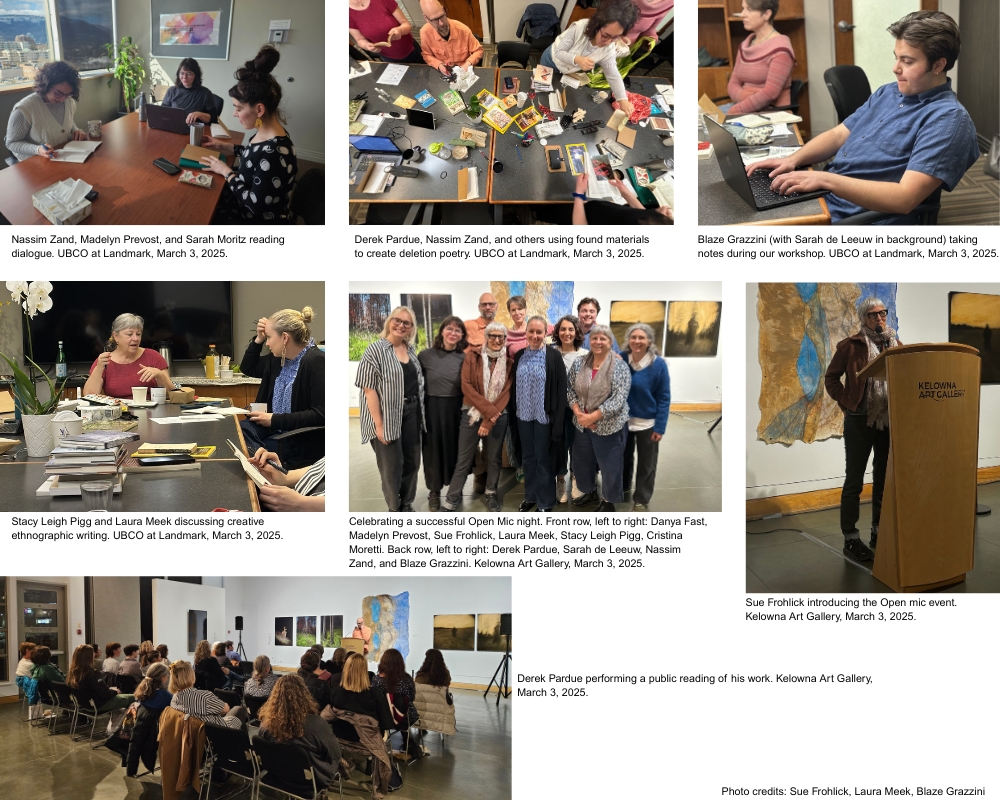
Throughout the 2023-24 academic year, the Storying Otherwise Hub hosted a series of “Spark Ups,” informal online gatherings open to everyone interested in creative ethnographic writing. We used these sessions to share resources, brainstorm collaborations, discuss challenges, and expand our international network of creative ethnographic writers.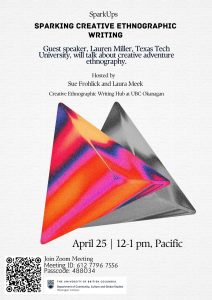
Our final “Spark Up: Sparking Creative Ethnographic Writing” event was held in April 2024 and featured cultural anthropologist Lauren Miller (Texas Tech University), who talked about the process of writing a creative adventure ethnography. She also presented a reading from her current book project, Thrown Out: A Choose-Your-Own-Adventure Ethnographic Novel.
Dr. Miller was motivated to write a fictionalized account because the stories of gender-based harassment and sexual assault that she encountered in her research were extremely personal and she worried about the unintended consequences her interlocutors might face if these stories were traced back to them. Her presentation facilitated an important discussion around the ethics of different kinds of writing practices, and how to fulfill our ethical obligations to our interlocutors (or “research subjects”) beyond those required by institutional ethics review boards. Among the many topics discussed, we considered how fiction presents new ethical challenges in terms of navigating positionality and representation.
In October 2023, we launched the Storying Otherwise Hub by hosting a public webinar featuring Dara Culhane (Simon Fraser University) and Megan Raschig (California State University), two leading figures in the North American creative ethnographic writing space.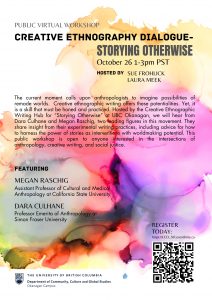
This event recognized that our current moment of multiple crises and social, political, economic, and environmental upheavals calls upon anthropologists (and others) to imagine creative possibilities of worlds remade. And, to be part of such change-making, we must ensure that our research is accessible to non-academic audiences. For these reasons, creative ethnographic writing is quickly becoming an essential genre for today’s anthropology. But creative writing is a skill that must be honed and practiced; it comes with challenges beyond the social science writing in which we were trained. At this inaugural event, Dr. Culhane and Dr. Raschig shared insights from their own experimental writing practices, including advice for how to harness the power of stories as interventions with worldmaking potential.
This virtual public workshop was open to anyone interested in the intersections of anthropology, creative writing, and social justice. You can listen to a free two-part podcast that the Hub created from this webinar here.
CONTACT US
Contact us at sue.frohlick@ubc.ca and laura.meek@ubc.ca. Please send your email to both of us and kindly include Storying Otherwise Hub in the subject line.